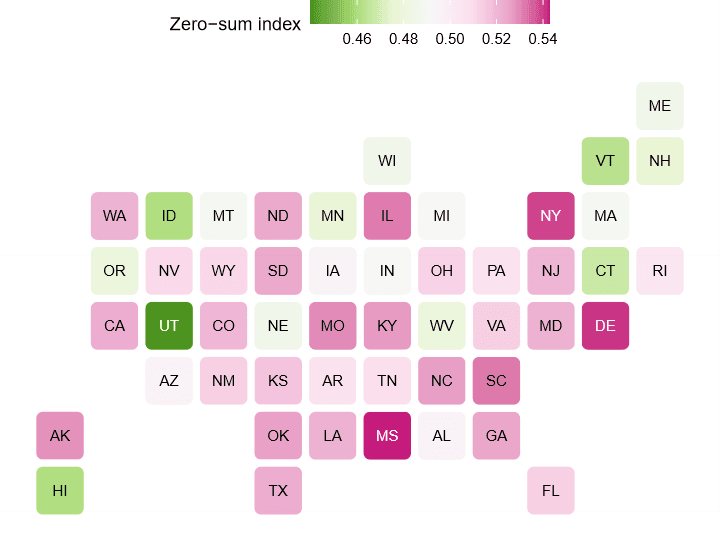
Which people tend to be more zero-sum? In general respondents who are in urban areas, younger, with lower income or lower educational achievements. Zero-sum thinking also varies by state: respondents in Utah are the least zero-sum; those in NY are among the most zero-sum. 7/23 https://t.co/uoJ8wR7N4f

